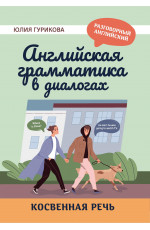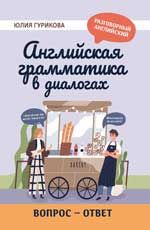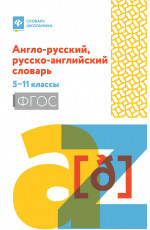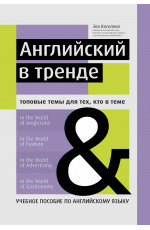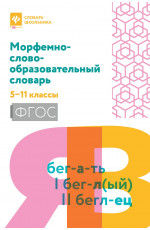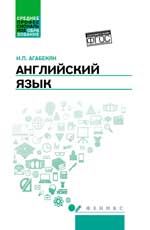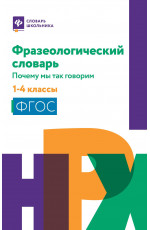при заказе книг на сумму от 3000 руб. — скидка 80% от стоимости доставки в пункты выдачи BoxBerry и CDEK.
Английский язык для студентов технических колледжей = English for Technical College Students: учебник. - Изд. 2-е, испр.. (Гарагуля)Купить книгу, доставка почтой, скачать бесплатно, читать онлайн, низкие цены со скидкой, ISBN 978-5-222-31508-8

| Название книги | Английский язык для студентов технических колледжей = English for Technical College Students: учебник. - Изд. 2-е, испр. |
| Автор | Гарагуля |
| Год публикации | 2019 |
| Издательство | Феникс |
| Раздел каталога | Языкознание (ID = 180) |
| Серия книги | Сред.проф.образование |
| ISBN | 978-5-222-31508-8 |
| EAN13 | 9785222315088 |
| Артикул | O0102645 |
| Количество страниц | 505 |
| Тип переплета | матовая+лакировка |
| Формат | 84*108/32 |
| Вес, г | 405 |
Посмотрите, пожалуйста, возможно, уже вышло следующее издание этой книги и оно здесь представлено:
Аннотация к книге "Английский язык для студентов технических колледжей = English for Technical College Students: учебник. - Изд. 2-е, испр."
автор Гарагуля
Учебник представляет собой курс английского языка, направленный на обучение различным видам чтения, овладение общеупотребительной и общетехнической лексикой в соответствии с отобранными темами и сферами общения, а также формирование навыков устной речи, аудирования и письма. Особое внимание уделяется грамматическим явлениям, характерным для чтения и перевода общетехнических текстов, и их тренировке. Предназначен для студентов технических колледжей. Может быть использован учащимися гимназий и лицеев, студентами первого курса бакалавриата технических вузов, а также специалистами-практиками, изучающими самостоятельно английский язык.
Читать онлайн выдержки из книги "Английский язык для студентов технических колледжей = English for Technical College Students: учебник. - Изд. 2-е, испр."
(Автор Гарагуля)
К сожалению, посмотреть онлайн и прочитать отрывки из этого издания на нашем сайте сейчас невозможно, а также недоступно скачивание и распечка PDF-файл.
До книги"Английский язык для студентов технических колледжей = English for Technical College Students: учебник. - Изд. 2-е, испр."
Вы также смотрели...
Другие книги серии "Сред.проф.образование"
Другие книги раздела "Языкознание"
Читать онлайн выдержки из книги "Английский язык для студентов технических колледжей = English for Technical College Students: учебник. - Изд. 2-е, испр." (Автор Гарагуля)
Серия «Среднее профессиональное образование»С.И. ГарагуляАНГЛИЙСКИЙ ЯЗЫКдля студентов технических колледжейENGLISHfor Technical College StudentsРекомендовано Научно-методическим советом Международного научного общественного объединения «МАИТ» в качестве учебника для студентов образовательных учреждений среднего образования, обучающихся по укрупненным группам специальностей 08.00.00 Техника и технологии строительства, 21.00.00 Прикладная геология, горное дело, нефтегазовое дело и геодезия, 23.00.00 Техника и технологии наземного транспорта (рецензия РЭЗ 16-18 от 23.05.2016 г.)Издание 2-е, исправленноеРостов-на-Дону «Феникс» 2019УДК 811.111(075.32)ББК 81.2Англ-92КТК 8032Г20Рецензенты:доктор филологических наук, профессор Белгородского государственного национального исследовательского университета И.А. Куприева;преподаватель Белгородского строительного колледжа Н.В. ПетроваГ20 Гарагуля С.И.Английский язык для студентов технических колледжей = English for Technical College Students : учебник / С.И. Гарагуля. — Ростов н/Д : Феникс, 2019. — 2-е изд., испр. — 509 с. — (Среднее профессиональное образование).ISBN 978-5-222-31508-8ПредисловиеНастоящий учебник адресован студентам технических колледжей, уже владеющих английским языком в пределах программы основного общего образования (9 классов). Он может быть рекомендован учащимся гимназий и лицеев, студентам первого курса бакалавриата технических вузов, а также специалистам-практикам, изучающим самостоятельно английский язык. Возможность использования учебника обучающимися, независимо от области их специализации, обеспечивается тем, что представленный в нем языковой материал не содержит узкоспециальной лексики.Учебник построен на основе Федерального государственного образовательного стандарта среднего профессионального образования в соответствии с программой курса иностранного языка для технических колледжей.Основная цель учебника, имеющего практическую направленность, — обучение различным видам чтения, овладение общеупотребительной и общетехнической лексикой в соответствии с отобранными темами и сферами общения, а также формирование навыков устной речи, аудирования и письма. Особое внимание уделяется грамматическим явлениям, характерным для чтения и перевода текстов профессиональной направленности, и их тренировке.Учебник состоит из 20 тематических уроков (Units) и двух приложений (Appendixes) — Supplementary Reading(«Дополнительное чтение») и Tapescripts(«Тексты, записанные на аудионосители»). Все уроки имеют единую структуру построения, включающую шесть разделов (Sections) — Vocabulary and Word Study, Grammar, Reading and Discussion, Speaking, Listeningи Writing, в каждом из которых реализуются определенные цели и задачи, установленные программой курса иностранного языка для технических колледжей.Раздел Vocabulary and Word Studyпредусматривает работу над активным словарем, который отражает наиболее частотные слова и словосочетания, представленные в публицистической, научно-популярной и общетехнической литературе. На осмысленное закрепление активной лексики нацелена соответствующая система упражнений, которые построены и расположены по принципу «от простого к сложному» — от уровня слова, словосочетания, предложения до уровня сверхфразового единства. Имеются упражнения на многозначность, нахождение синонимов и антонимов, определение значений именных словосочетаний с препозитивными определениями, узнавание интернациональных слов и терминов, словообразование и т.д., что способствует выработке у обучающихся языковой догадки. Для снятия произносительных трудностей активная лексика снабжена транскрипцией. Выполнение данных заданий обеспечивает усвоение активного словаря в полном объеме.В разделе Grammarпредставлены коммуникативно-ориентированные задания, нацеленные на развитие базовых грамматических навыков понимания и перевода общетехнических текстов, создание и воспроизведение высказываний на английском языке. Грамматический материал включает явления, характеризующиеся высокой частотностью употребления в научной речи. Прежде всего это относится к структуре предложения, видовременным формам глагола в действительном и страдательном залоге, модальным глаголам, неличным формам глагола и др. К большинству упражнений даны образцы их выполнения.Каждый раздел Reading and Discussionсодержит два текста, тематика которых отражает различные стороны академической и профессиональной деятельности будущих специалистов среднего звена, социокультурную специфику родной страны и стран изучаемого языка, достижения современной науки и техники, включает биографии выдающихся ученых, описания научных открытий и т.д. Первый текст (Text A) рассматривается в качестве основного текста урока и предназначен для изучающего чтения. К нему даются предтекстовые и послетекстовые упражнения. Предтекстовые задания преследуют цель формирования навыков прогнозирования и умения вести беседу общего содержания по проблематике урока. Упражнения послетекстового этапа способствуют развитию монологической речи в виде сообщения или доклада — констатировать факт или обосновать и выразить собственное мнение, сделать короткое сообщение или обобщение. Второй текст (Text B) предназначен для развития навыков ознакомительного, просмотрового или поискового чтения. Упражнения к этому тексту направлены на осуществление контроля понимания, определение его основной темы или идеи, поиск конкретных данных, применение определенной информации в соответствии с коммуникативными задачами. Данный текст также может быть использован для пересказа. Дополнительной целью работы над текстами Aи Bявляется расширение общеупотребительного и общенаучного вокабуляра обучающихся, а также тренировка грамматических структур урока.Раздел Speakingвключает диалоги, содержащие устойчивые выражения, речевые модели и клише, характерные для неофициального и официального общения в бытовой, социокультурной и учебной сферах: знакомство, представление себя и коллег, семья, описание людей, учеба в колледже, будущая профессия, досуг, спорт, обычаи и праздники, научно-технический прогресс и др. Задания, составленные к диалогам, построены по принципам моделирования различных жизненных ситуаций, в которых могут находиться студенты.В разделе Listeningпредставлены задания к двум аудиотекстам, которые приводятся в приложении 2 (Appendix 2. Tapescripts). Они могут быть прочитаны преподавателем или звучать в записи. Небольшие по объему тексты монологического характера непосредственно связаны с темой урока. Контроль их понимания осуществляется с помощью вопросно-ответных упражнений, путем заполнения таблиц/схем и др. Цель заданий состоит в понимании общего смысла прослушанного текста, нахождении или извлечении конкретной информации, которые служат основой для краткого изложения содержания аудиотекста, дискуссии по теме и т.д. К приложению Tapescriptsобучающиеся обращаются на заключительном этапе работы над разделом Listening, что позволяет им проверить правильность понимания текста, а также выявить непонятные фрагменты, выписав и выучив незнакомые слова.Упражнения раздела Writingнаправлены на развитие навыков передачи на английском языке и правильного оформления информации в соответствии с коммуникативными целями и с учетом адресата — написание личных, деловых и электронных писем, факсов, изложение сведений о себе, заполнение наиболее распространенных анкет и бланков, оформление резюме, составление рефератов и др.Приложение 1 Supplementary Readingвключает тексты для дополнительного чтения с последующим написанием реферата. Они способствуют расширению не только лингвострановедческого, но и профессионального кругозора студентов. Данные тексты могут быть использованы как для работы в группе, так и для самостоятельной работы студентов с последующим обсуждением содержания текстов в аудитории или в виде индивидуальных устных сообщений.Автор выражает глубокую признательность рецензентам — доктору филологических наук, профессору Ирине Анатольевне Куприевой и преподавателю Наталье Владимировне Петровой за детальный анализ рукописи и ценные критические замечания, высказанные при рецензировании учебника.АвторUNIT 1.The College I Go ToVOCABULARY AND WORD STUDYRead and memorize the active vocabulary to the text “A Technical College” and translate the given sentences.
range ['reind3] n v —ряд, серия, диапазон, интервал, предел; колебаться в пределах, классифицировать, простираться
There is a wide range of opinions on this issue. The average age range is between 53 and 55. Prices range from £5 to £10. The conversation ranged widely.academic [,экги'( lemil<| adj — учебный, академический academic building [ 'bildig] — учебное здание academic course [ko:s] — учебный курс
academic year — учебный годShe received awards for her academic achievements. This academic building was built in 1978 and expanded in 2012. The college offers a wide range of academic courses. The students return in September for the start of the new academic year.term [ts:m] n — семестр
end-of-term tests and examinations — семестровые зачеты и экзаменыAre there any exams at the end of this term? The students take end-of-term tests and exams twice a year.vocational [v9u'keij(a)nal] adj —профессиональный vocational-technical college ['teknik(a)l] — профессиональнотехнический колледж
go to a vocational-technical college — учиться в профессионально-техническом колледжеThe college also offers a wide range of vocational programmes. Another approach is to use simulation programs to make education more vocational, more practically orientated. To prepare for some technical jobs, you may need to go to a vocational-technical college.department [di'pa:tmant] n — отделение; кафедра
The chemistry department is situated on the first floor of the college.first-year student — студент первого курса, первокурсник full-time student — студент очной (дневной) формы обучения
All the first-year students are required to attend this conference. She was a full-time student.attend [a'tend] v — посещать, присутствовать attend college — учиться в колледже
attend classes — посещать занятия attend a workshop ['wa:kjop] class — посещать занятие в мастерскойattend a lecture ['lektja] — посещать лекцию attend a seminar ['semina:] — посещать семинарAre you going to attend the meeting? He will attend college till he is nineteen. Students are expected to attend classes regularly. The students find it useful to attend workshop classes. You need to attend all the lectures and take notes.learning programme — программа (форма) обучения correspondence [,kori'spond(a)ns] learning programme — программа (форма) заочного обучения
distance learning programme — программа (форма) дистанционного обученияA learning programme leads to the achievement of a particular qualification. The majority of colleges offering correspondence learning programmes also offer regular classroom-based learning. The University of London was the first university to offer distance learning programmes.train [trein] v— обучать, готовить (к чему-л.)
training n— обучение, подготовка, образованиеThe college trains specialists for the construction industry. He is training to be an electrician. Some colleges provide vocational training. On the course he received a thorough training of the job.employ [im'ploi] v —предоставлять работу, нанимать; использовать, применять
employer [im'plois] n — работодатель, наниматель employee [imploi'i:] n — служащий; работающий по найму employment [im'ploimsnt] n — работа, служба; занятость (рабочей силы); прием (на работу); применение, использованиеHow many people does the company employ? The statistical analysis was employed to obtain these results. He was sent to London by his employer. The company has over 50 employees. He couldn't find employment.occupation [,okju'peij(3)n] n — профессия; занятие; род или вид деятельности, занятий
technical occupation — техническая профессияtechnician [tek'nij(a)n] n — техникPlease state your name, address, and occupation. By occupation she is a secretary. The college trains students in technical occupations. The company is looking for a technician to work full time on a permanent basis in the laboratory.equip [i'kwip] / (syn.) fit v —оборудовать, оснащать equipment [i'kwipmsnt] n — оборудование, оснащение up-to-date [ ,Apta'deit] equipment — современное (новейшее)
оборудованиеIt is going to cost a lot of money to equip the laboratory. The rooms were all fitted with smoke alarms. The plant needed new equipment. This factory uses the most up-to-date equipment.provide [prs'vaid] v — снабжать, обеспечивать
They will not provide us with any details. He course is free but you have to provide your own books.scholarship ['skolajip] n — стипендия
grant a scholarship — давать (присуждать) стипендиюHe receives a scholarship. He was granted a scholarship.borrow ['borsu] v — брать (на время); занимать, одалживать borrow course books from the library — брать учебники в библиотеке
Can I borrow your pen? He borrowed100 roubles from his friend. They can borrow up to four course books from the library.facility [fg'siliti] n — устройство, приспособление, оборудование; сооружение
sports facilities — спортивные сооруженияThis is a phone with a memory facility. The college has excellent sports facilities.hall of residence / hall n— студенческое общежитие
Do you live in the hall of residence?accommodate [s'komsdeit] v —предоставлять жилье accommodation [э,koma'deijn] n —помещение, жилье
The hall of residence can accommodate up to 500 students. Hotel accommodation is included in the price of your holiday.complete ^m'p1i:t] adj v — полный, законченный, завершенный; заканчивать, завершать
complete education — получить образованиеcompletion [кэш'р11:1(э)п] n — завершение, окончаниеI collected the complete set. His work is now complete. Не completed his first novel. Millions of girls and boys completed their secondary education last year. Completion of secondary education is the requirement for admission to higher education.curriculum [кэ'пкщЬш] n — учебный план, курс обучения
English is on the curriculum.take an exam(ination) — держать (сдавать) экзамен pass an exam(ination) — выдержать (сдать) экзамен
How many students are taking the biology exam this term? I failed my physics exam, but I passed chemistry.carry out tests (experiments) — проводить опыты/ испытания (эксперименты)
During the term, the students carry out a lot of laboratory tests.graduate (from) ['gredjueit] v — окончить (колледж, университет); ['gr^djuit] n — выпускник (колледжа или университета)
graduation paper — дипломная работаdefend [di'fend] a graduation paper — защитить дипломную работуHe graduated from college last year. I am a graduate of the construction department. I should explain something about my graduation paper. Students will defend their graduation papers in June.skill n— мастерство, опыт, умение, квалификация skilled adj— опытный, умелый, квалифицированный
4. Make the following sentences complete by translating the words and phrases in brackets.A (семестр) divides the (учебный год) into two periods. 2. The students (сдавать семестровые зачеты и экзамены) twice a year. 3. A (профессиональный) course teaches the skill necessary for a particular job. 4. There are three (отделения) in the college. 5. There are about 500 (студенты дневной формы обучения) going to college. 6. The (заочная и дистанционная формы обучения) are ideal if you need to combine work and studies. 7. (Квалифицированные) mechanical (техники) play a vital role in the industry. 8. Many colleges (готовят) electricians. 9. The centre is responsible for the video presentation (оборудование) installed in the college rooms. 10. The college is adding more technical courses to its (учебный план).
Insert the correct word from the Active Vocabulary.
1. A learning programme is an educational course thatyou take at home, receiving your work and sending it back by post or by email. 2. This college has a wide of learning programmes.3. He defended his successfully. 4. The hall of residencecan about 300 students. 5. I go to a college.He will his secondary education in 2016. 7. A freshman
or a fresher is a in secondary school, college or university.8. Please let me know if you are unable to a workshop classon Monday. 9. He managed to all his examinatons. 10. Thecollege has the excellent including a swimming pool,a fitness room, a sports hall, a tennis court and a gym.6. Read and translate the following international words which come from Text 1A. Look up their transcriptions in the dictionary if necessary. Mind the part of speech.Academic adj, department n, technical adj, resource n, style n, athlete n, organise v, general adj, special adj, specific adj, practical adj, laboratory n, design n v, creative adj, innovative adj, graphics n, technology n, fundamental adj, characteristic n adj, process n.Study the ways some nouns are formed from verbs. Form the nouns from the following verbs. Read and translate them into Russian. Use your dictionary to help you with the pronunciation.
-er/-or (the suffixes are used for a person who does an activity and for things which do a particular job):
Example: build — строитьbuilder — строительCollect, compute, begin, farm, manufacture, produce, distribute, work, own, use, design, manage, direct, educate, translate.-ment (the suffix is used for an act or result of something):
Example: achieve — достигатьachievement — достижениеPay, govern, employ, agree, manage, establish, improve, advertise, require, involve, equip, arrange, adjust, accomplish.-ion/-ation/-ition/-sion/-tion (the suffixes are used for an act, state, or result of something):
Example: construct — строитьconstruction — строительствоCreate, complete, decide, educate, prepare, produce, compete, examine, distribute, graduate, pollute, define, locate, combine, limit.Read and translate the following phrases using the above patterns. Look up the words in your dictionary if necessary.
The leader of the students' union, an observer of nature, a Nobel Prize winner, a tape recorder, laboratory equipment, some interests of investors, to reach agreement, people in employment, investment into the sphere of vocational-technical education, a graduation paper, a monthly payment, an end-of-term examination, the completion of education, his election to the post, a job-creation scheme.SECTION 2GRAMMAR9. Study the forms and use of the articles.Употребляется только с исчисляемыми существительными в единственном числе и обозначает:1. Одного представителя какого-то класса предметов или лиц: He is a student. It is a hotel.Любой предмет:
Give me a pen.Упоминание слова в первый раз: He has a new car.
Употребляется как с исчисляемыми существительными в единственном и во множественном числе, так и с неисчисляемыми существительными, когда: 1. Речь идет об определенном лице или предмете:The lecture was interesting. 2. Слово упоминалось ранее: He has a new car; the car is very expensive.10. Write a or an.1. ___academic year2. ___ term3. ___ technician___ employee
7. ___ university8. ___ organisation9. ___ hour___ first-year student
___up-to-date system
11. Put a or the into each gap.1. ___ college I go to offers ___ wide rage of academic courses. 2. I have two children, ___ girl and ___ boy. ___ girl is four and ___ boy is seven. 3. ___ academic year runs from September to June. 4. At the end of ___ period of study, every student writes and gets ready ___ graduation paper. 5. Each classroom has ___ computer. 6. ___ college library provides ___ place to study, material for study and services to assist study. 7. ___ college has ___ canteen. ___ canteen is very big. 8. I must take ___ bus to get to my college. 9. I am ___ first-year student. 10. It is ___ easy test. 11. Give me ___ pen.12. Study the rules for forming the plural of nouns.Read the following plurals of the nouns. Remember the rules for the pronunciation of -s/-es at the end of a word.
Photos, trees, desks, brushes, workers, pages, lorries, toys, wives, chairs, places, computers, families, buses, knives, wishes, inches, monkeys.The nouns in the box all appear in Text 1A of the Unit. Put them in the correct column to show their pronunciation.
Write the plurals of these nouns ending in consonant +-y, vowel +-y and -f(e).
Activity, laboratory, day, leaf, activity, life, ability, play, bookshelf, half, facility, toy, guy, factory, loaf.Write the irregular plurals of the following nouns. Use your dictionary in necessary.
a) man, foot, goose, child, man, woman, tooth, ox, mouse;b) medium, phenomenon, crisis, basis, curriculum, radius, datum, spectrum, stimulus, axis, matrix.Read and translate the following word combinations with nouns in the possessive case.
Eve's friend, Mr Kelly's wife, James's party, Paul's house, the teacher's desk, my friend's party, the college students' course books, the schoolchildren's uniform, my parents' garden, my boss's car, fifteen minutes' break, the librarians' room, an hour's journey.Join two nouns as in the example. Use an apostrophe (') with or without s for people; of — for things.
Example: the bag/my friend — my friend's bag;the window/the room — the window of the room.The birthday/Tom; the favourite team/Alice; the hall/residence; the son/Charles; the duration/ the course programmes; the books/ the children; the telephone number/my sister; the end/the term; the name/this street; the key/the car; the bicycle/my brother; the career/Mr Fox; the engineer/the computer; the dog/the medal.Translate the following word combination into English.
Сын моей сестры, профессия ее матери, учебный курс первокурсников, компания работодателя, преподаватели моего брата, отделения колледжа, комната Бесс, тетради студентов дневного отделения, классные комнаты колледжа, страница книги, имя сестры моего друга, слова урока 1.Study the forms and uses of the personal and possessive pronouns.
Examples:Личные местоимения (The Personal pronouns)I am talking to him. He is talking to me. You see them. They see you.She visits us every Sunday. We visit her on Saturdays.You live with them. They came to see you.The key is on the table. It is on the table.The book is interesting. It is interesting.The letter was received. It was received.I don't want this book. You can have it.Я разговариваю с ним. Он разговаривает со мной. Вы (ты) видите (видишь) их. Они видят вас (тебя).Она навещает нас каждое воскресенье. Мы навещаем ее по субботам.Вы (ты) живете (живешь) с ними. Они пришли повидаться с вами (тобой). Ключ на столе. Он на столе.Книга интересная. Она интересная.Письмо было получено. Оно было получено.Мне не нужна эта книга. Ты можешь ее взять.Притяжательные местоимения (The Possessive Pronouns)I know Nick but I don't know his wife.It's my favourite sport. It is her husband's house. I can give you my pen. You can give me your pen. Oxford is famous for its university.This is your pen and that is mine.“Is this your pen?” “No, it's yours.”These pens are ours.Я знаю Ника, но не знаю его жену.Это мой любимый вид спорта.Это дом ее мужа.Я могу дать вам свою ручку.Ты можешь дать мне свою ручку. Оксфорд известен своим университетом.Это твоя ручка, а то — моя.«Это твоя ручка?» — «Нет, это твоя (ручка)».Эти ручки — наши.Сравните:Я знаю его. (личное местоимение)Я знаю его сестру. (притяжательное местоимение)Я видел их. (личное местоимение)Я видел их родителей. (притяжательное местоимение)I know him.I know his sister.I saw them.I saw their parents.Complete the sentences using the correct form of the personal pronouns in brackets.
1. ... are full-time students (us, we). 2. Tell ... about your college (us we). 3. We saw ... in the college library (she, her). 4. Jane gave... those books (I, me). 5. Show ... your graduation paper (he, him). 6. Where is my money? — I put ... on the table (it, them). 7. ... am a first-year student (I, me). 8. . are fitted with up-to-date equipment and instruments (they, them). 9. Talk to . after classes (they, them).Look at my new book. . is very interesting (she, it).
Complete the sentences using the correct form of the possessive pronouns in brackets.
1. . college is old (our, ours). 2. Whose map is this? — It is . (our, ours). 3. . department is on the third floor (your, yours). 4. Is that . car? (your, yours) 5. Is it your idea? — Yes, it's . (my, mine). 6. . favourite subject is English (my, mine). 7. Are you Jane's friend? — Yes, I'm a friend of . (her, hers). 8. Ann is going out with . friend this evening (her, hers). 9. This is a beautiful tree. . leaves are a beautiful colour (his, its). 10. I want to phone Pete. Do you know . phone number? (his, its) 11. Tell me about . college (their, theirs). 12. My room is bigger than . (their, theirs).Make the following sentences complete by translating the personal and possessive pronouns in brackets.
1. (Наш) college was founded in 1970. (Он) has grown significantly since that time. 2. (Он) is a second-year student. 3. Show (мне) your new computer classroom. 4. (Их) academic course is very interesting. 5. These computers are (их). 6. She is doing (свою) work. 7. The robot is doing (свою) work. 8. He is doing (свою) work. 9. (Оно) (общежитие) is in Pushkin street. 10. (Ее) brother is also a college student. 11. Give (мне) another example of this grammar rule. 12. (Я) ask (тебя) to explain this rule. 13. This house is (наш). 14. Can I introduce (тебя) to a friend of (мой)? 15. I know (вас) but I don't know (вашего) son. 16. Now this book is (ваша). 17. I saw (его) new bicycle. 18. I saw (его) in the college canteen yesterday. 19. This is a very old table. (Его) legs are broken. 20. Tell (нам) about your lectures.Study the forms of the verb to be (быть, находиться, пребывать где-либо) in the Present, Past and Future Simple Tenses.
Read the following sentences which are a) present, b) past and c) future. Put them into the negative and the question. Translate these sentences.
Example:The report was ready yesterday. (When?)The report was not (wasn't) ready.Was the report ready yesterday?When was the report ready?a) 1. We are future technicians. 2. My keys are on the table. (Where?) 3. They are college students. 5. You are at college now. (When?) 6. He is fifteen years old. (How old?) 7. My father is a skilled worker. 8. It is our college. 9. His work is complete. 10. I am a college student.СодержаниеПРЕДИСЛОВИЕ 3Section 1.Vocabulary and Word Study7Section 2.Grammar14Section 3.Reading and Discussion24Section 4.Speaking29Section 5.Listening34Section 6.Writing 35Unit 2. Student Life 37Section 1.Vocabulary and Word Study37Section 2.Grammar43Section 3.Reading and Discussion 54Section 4.Speaking 59Section 5.Listening 61Section 6.Writing 63Unit 3. My Future Profession 64Section 1.Vocabulary and Word Study 64Section 2.Grammar72Section 3.Reading and Discussion79Section 4.Speaking83Section 5.Listening85Section 6.Writing 86Unit 4. English as a Global Language89Section 1. Vocabulary and Word Study 89Section 2. Grammar 95Section 3. Reading and Discussion 101Section 4. Speaking 105Section 5. Listening 109Section 6. Writing 110Unit 5. The Russian Federation 112Section 1. Vocabulary and Word Study 112Section 2. Grammar 119Section 3. Reading and Discussion 124Section 4. Speaking 129Section 5. Listening 132Section 6. Writing 133Unit 6. Great Britain 135Section 1. Vocabulary and Word Study 135Section 2. Grammar 141Section 3. Reading and Discussion 145Section 4. Speaking 151Section 5. Listening 154Section 6. Writing 155Unit 7. The United States of America 157Unit 8. Customs and Traditions in the UK and US 180Section 1.Vocabulary and Word Study 180Section 2.Grammar 187Section 3.Reading and Discussion 190Section 4.Speaking 198Section 5.Listening 201Section 6.Writing 202Unit 9. National Stereotypes and Symbols 203Section 1.Vocabulary and Word Study 203Section 2.Grammar 209Section 3.Reading and Discussion 213Section 4.Speaking 218Section 5.Listening 221Section 6.Writing 222Unit 10. Ancient Structures 225Section 1.Vocabulary and Word Study 225Section 2.Grammar 231Section 3.Reading and Discussion 234Section 4.Speaking 238Section 5.Listening 240Section 6.Writing 242Unit 11. Science and Technology 244Unit 12. Great Scientists 264Section 1.Vocabulary and Word Study264Section 2.Grammar 271Section 3.Reading and Discussion273Section 4.Speaking278Section 5.Listening 278Section 6.Writing 280Unit 13. The World of Inventions 283Section 1.Vocabulary and Word Study283Section 2.Grammar 290Section 3.Reading and Discussion293Section 4.Speaking298Section 5.Listening 303Section 6.Writing 304Unit 14. Materials in Industry 306Section 1.Vocabulary and Word Study306Section 2.Grammar 312Section 3.Reading and Discussion317Section 4.Speaking322Section 5.Listening 324Section 6.Writing 325Unit 15. Public Transport 328Unit 16. Computers in Student Life 348Section 1.Vocabulary and Word Study348Section 2.Grammar 356Section 3.Reading and Discussion361Section 4.Speaking366Section 5.Listening 369Section 6.Writing 371Unit 17. Environmental Issues372Section 1.Vocabulary and Word Study372Section 2.Grammar 378Section 3.Reading and Discussion382Section 4.Speaking387Section 5.Listening 389Section 6.Writing 390Unit 18. Civil Engineering 393Section 1.Vocabulary and Word Study393Section 2.Grammar 400Section 3.Reading and Discussion404Section 4.Speaking409Section 5.Listening 410Section 6.Writing 411Unit 19. Mechanical Engineering 415Unit 20. Electrical Engineering 433Section 1.Vocabulary and Word Study433Section 2.Grammar 440Section 3.Reading and Discussion442Section 4.Speaking447Section 5.Listening 449Section 6.Writing 451Appendix 1 452Appendix 2 473Список литературы 496Учебное изданиеГарагуля Сергей ИвановичАнглийский язык для студентов технических колледжейEnglish forTechnical College Students








